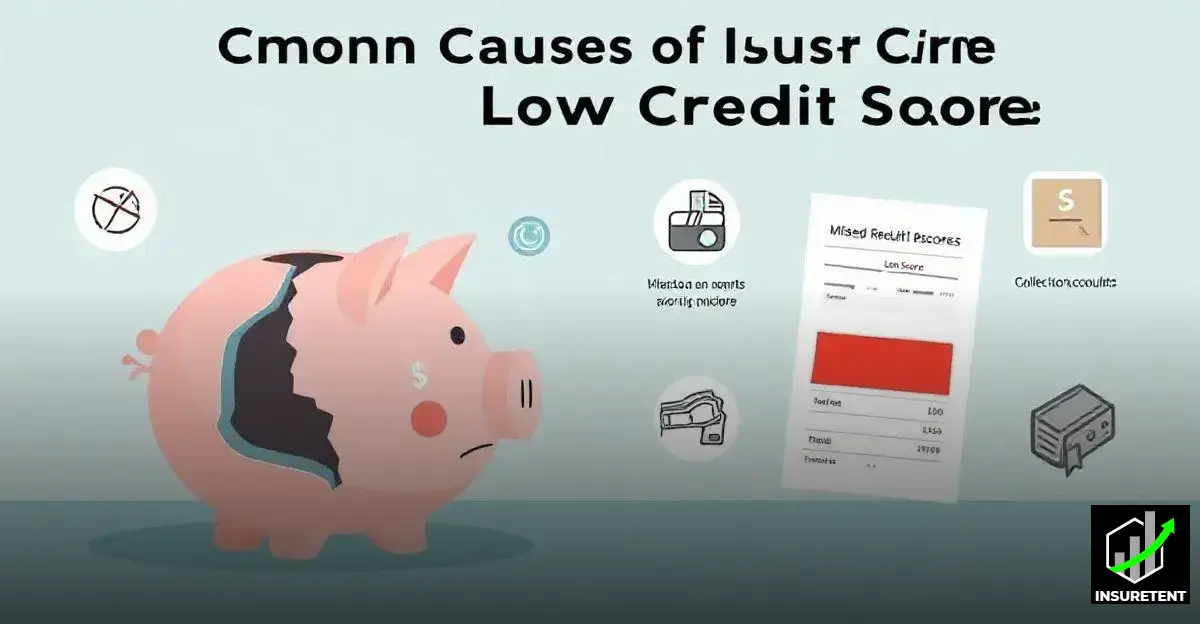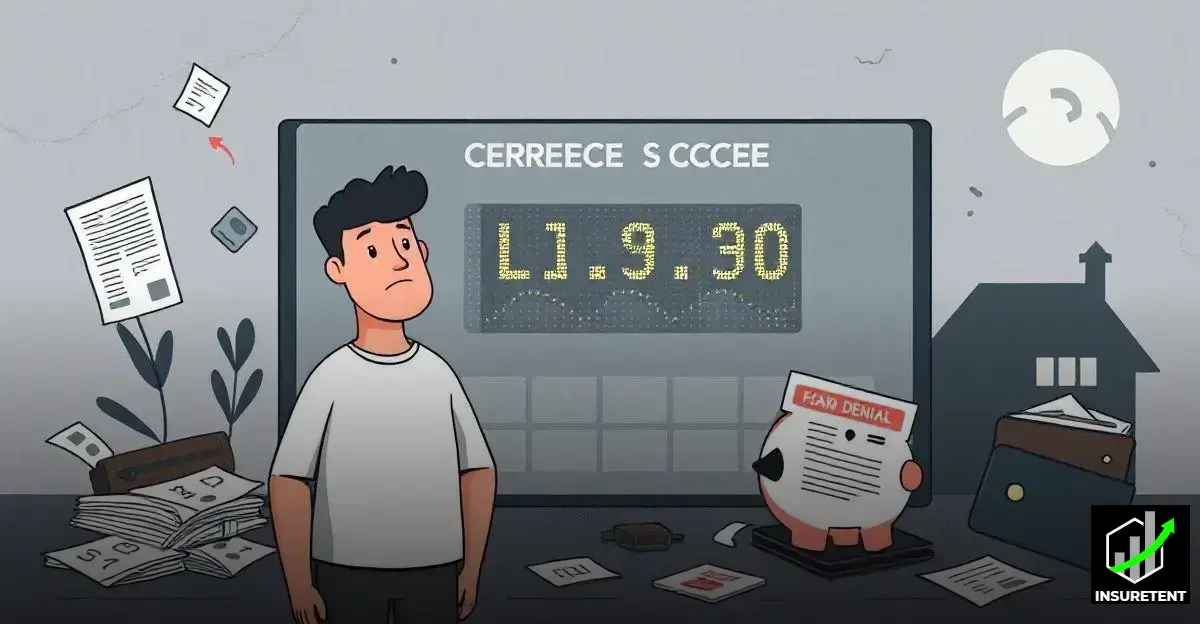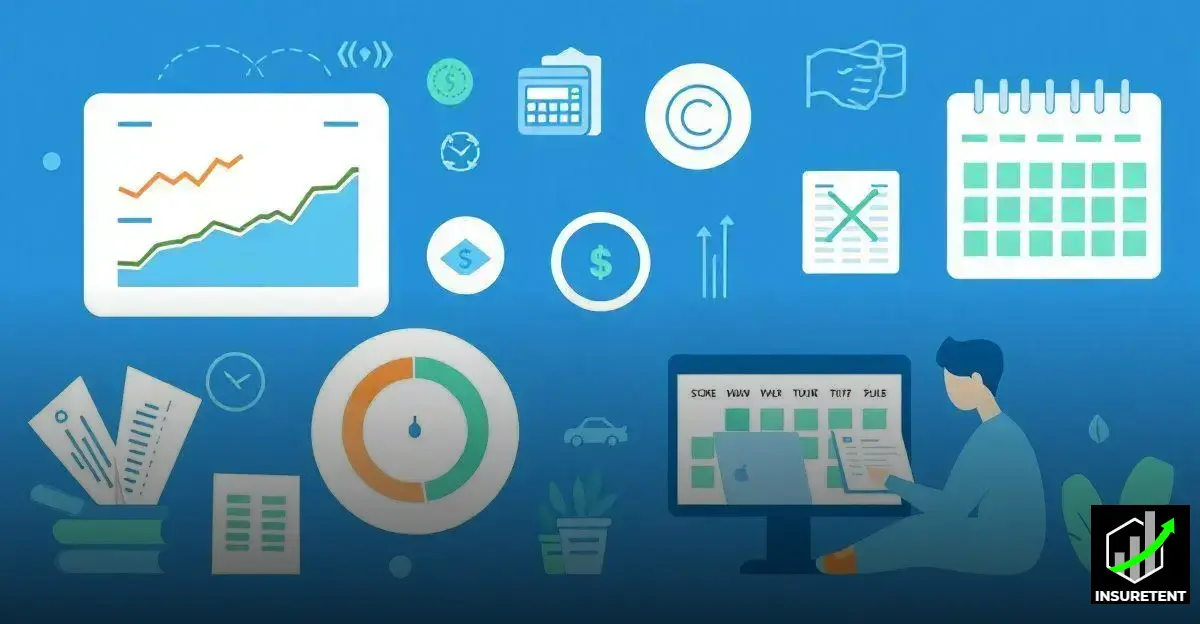A low credit score can feel daunting, but understanding its implications is the first step to improving your financial health.
With millions facing the same challenge, it’s critical to learn about the reasons for low scores and the practical steps you can take to enhance your situation.
Understanding What a Low Credit Score Means
An understanding of what a low credit score means is vital for managing your finances effectively. A credit score typically ranges from 300 to 850, with anything below 580 generally considered poor. This score reflects your creditworthiness, which lenders use to evaluate the risk of lending you money.
A low credit score indicates a history of financial instability, such as missed payments, high credit utilisation, or even bankruptcy. Being aware of your score can help you take necessary actions to improve it. Regularly monitoring your credit report is an essential practice, as it allows you to identify any inaccuracies or fraudulent activities that may negatively impact your score.
Low credit scores can lead to higher interest rates on loans or even denial of credit applications altogether. This can negatively affect not only large purchases like homes and cars but also everyday needs like credit cards and personal loans.
Understanding the implications of having a low credit score is crucial to making informed financial decisions and taking action. By learning how credit scores work, you can better navigate your financial future and work towards improving your score.
Common Causes of Low Credit Scores

Understanding the common causes of low credit scores is essential for improving your financial health. Various factors contribute to your score, and recognizing them can help you avoid pitfalls.
One of the primary reasons for a low score is a history of missed payments. Even being just a few days late can have a negative impact. Another significant factor is high credit utilization, which refers to using a large portion of your available credit. Maintaining a low balance on your credit cards is crucial.
Using multiple credit accounts irresponsibly is also a common issue. Frequently applying for new credit can lead to numerous hard inquiries on your report. Each inquiry can slightly reduce your score, making it important to space out credit applications.
Additionally, factors like having no credit history or a short credit history can hinder your score, as lenders have less information to assess your credit behavior. Negative entries, such as collections, bankruptcies, or defaulted loans, can drastically affect your score.
Staying informed and taking proactive measures can help you avoid these issues and improve your credit score over time.
Tips to Improve Your Low Credit Score
Improving your low credit score is essential to achieving financial stability and securing better loan terms. Here are some practical tips to consider. First, always make payments on time. Set reminders or automate payments to avoid missing deadlines. Late payments can significantly lower your credit score.
Second, aim to reduce your credit utilisation ratio. Keep your credit card balances low, ideally below 30% of your total credit limit, to show lenders that you manage credit responsibly.
Third, check your credit report regularly for errors. Many people are unaware that inaccuracies can harm their credit. Dispute any mistakes you find to ensure your score reflects your true credit history. Additionally, try to maintain a mix of credit types, such as revolving credit (credit cards) and installment loans (car or home loans). This diversity can positively influence your credit score.
Lastly, consider becoming an authorized user on someone else’s credit card with a good payment history. This can help boost your credit without needing to open a new account. By following these tips, you can work towards improving your low credit score and enhance your overall financial health.
How a Low Credit Score Affects Your Finances

A low credit score often results in higher interest rates on loans and credit cards, increasing borrowing costs.
A low credit score can restrict loan and credit options, with some lenders potentially rejecting applications altogether.
Some employers check credit scores, particularly in financial roles, which can affect job opportunities.
It’s essential to understand how a low credit score affects your finances.
Taking steps to improve your score can help reduce financial stress and open up more opportunities.
Resources to Help You with a Low Credit Score
Finding the right resources to help you with a low credit score can significantly impact your financial journey. Many organizations offer assistance for individuals seeking to improve their credit scores.
Start by reaching out to non-profit credit counseling agencies. These agencies provide free advice and can help you develop a personalized plan to tackle debt and improve your score.
Next, consider online platforms such as Credit Karma or Experian, which allow you to check your credit score for free and offer tips on how to improve it. They often provide resources that can guide you through understanding your credit report and disputing any inaccuracies.
Another option is credit repair services. While some may charge a fee, they can help negotiate with creditors and provide strategies to rebuild your credit.
Additionally, financial education through workshops or online courses can empower you with knowledge to make better financial decisions.
Finally, consider using budgeting apps to track your spending and savings. These tools ensure you stay on top of your finances.
By equipping yourself with the right resources and knowledge, you can take meaningful steps toward improving your credit score.
The Importance of Monitoring Your Credit Score

The importance of monitoring your credit score cannot be overstated. Regularly keeping an eye on your score allows you to understand where you stand financially.
A good practice is checking your credit report at least once a year. This helps ensure there are no errors that could negatively impact your score. If you spot discrepancies, disputing them promptly can be beneficial.
Furthermore, monitoring your credit score can alert you to potential fraud. If your score drops unexpectedly, it could indicate that someone is misusing your information. Immediate action can then be taken to protect your finances.
Knowing your score also provides insight into whether you are in a position to apply for loans or credit cards.
Finally, observing how your financial habits affect your score over time can be impactful. By monitoring your score, you can see the direct effects of timely payments, reduced credit utilization, and responsible credit use, thereby encouraging better financial behavior.
FAQ – Frequently Asked Questions about Low Credit Scores
What is a low credit score?
A low credit score is typically defined as a score below 580, indicating a higher risk to lenders.
What causes a low credit score?
Common causes include missed payments, high credit utilization, and having too many hard inquiries.
How can I improve my low credit score?
Improving your score can be achieved by making payments on time, reducing debt, and monitoring your credit report for inaccuracies.
How often should I check my credit score?
It’s advisable to check your credit score at least once a year to stay informed about your financial health.
Can I still get a loan with a low credit score?
Yes, but you may face higher interest rates and fewer options for loans compared to those with higher scores.
Are there resources to help with a low credit score?
Yes, there are non-profit credit counselling agencies and online platforms that offer guidance and support.
Check out our article on Good Credit Score to learn how to build and maintain a strong financial foundation.
